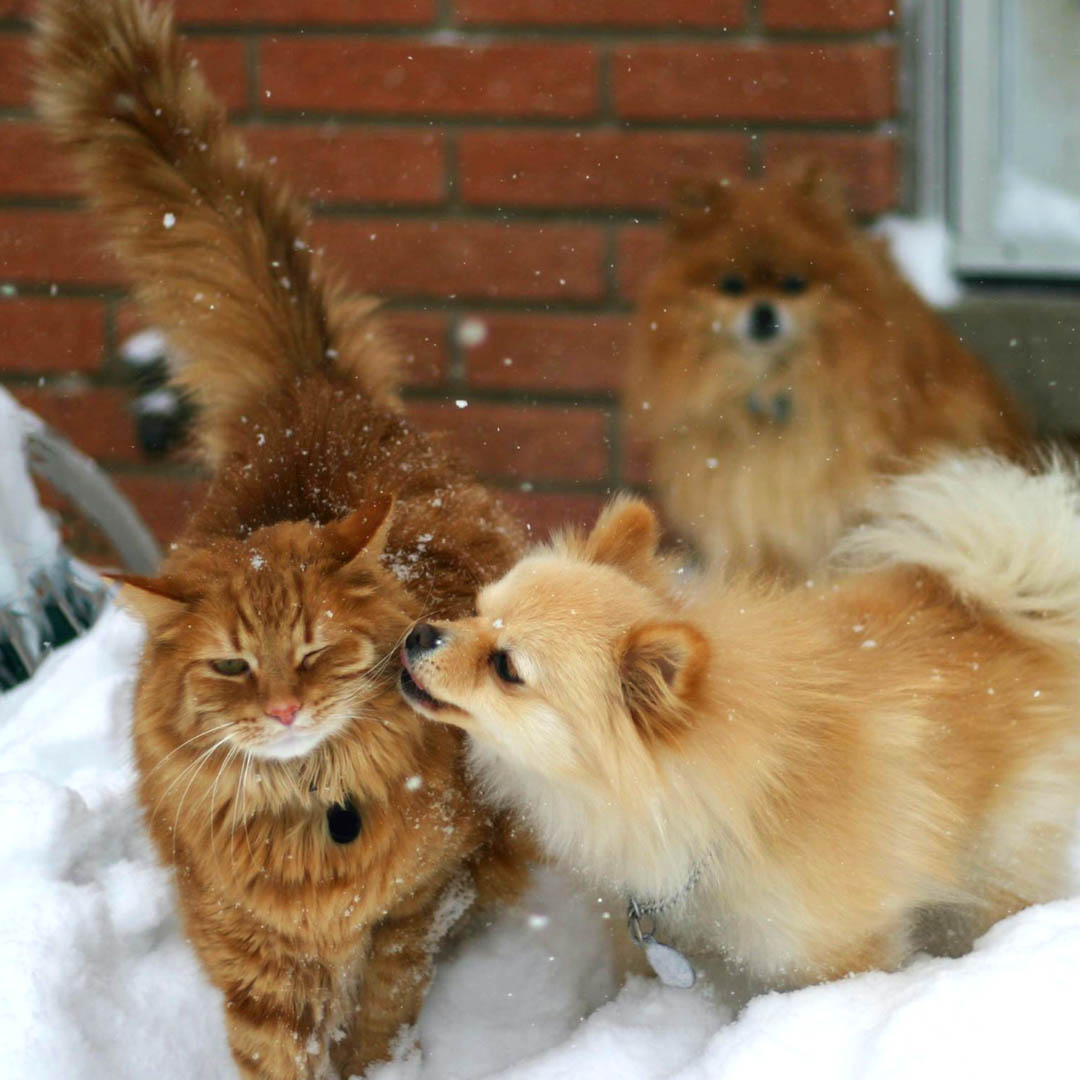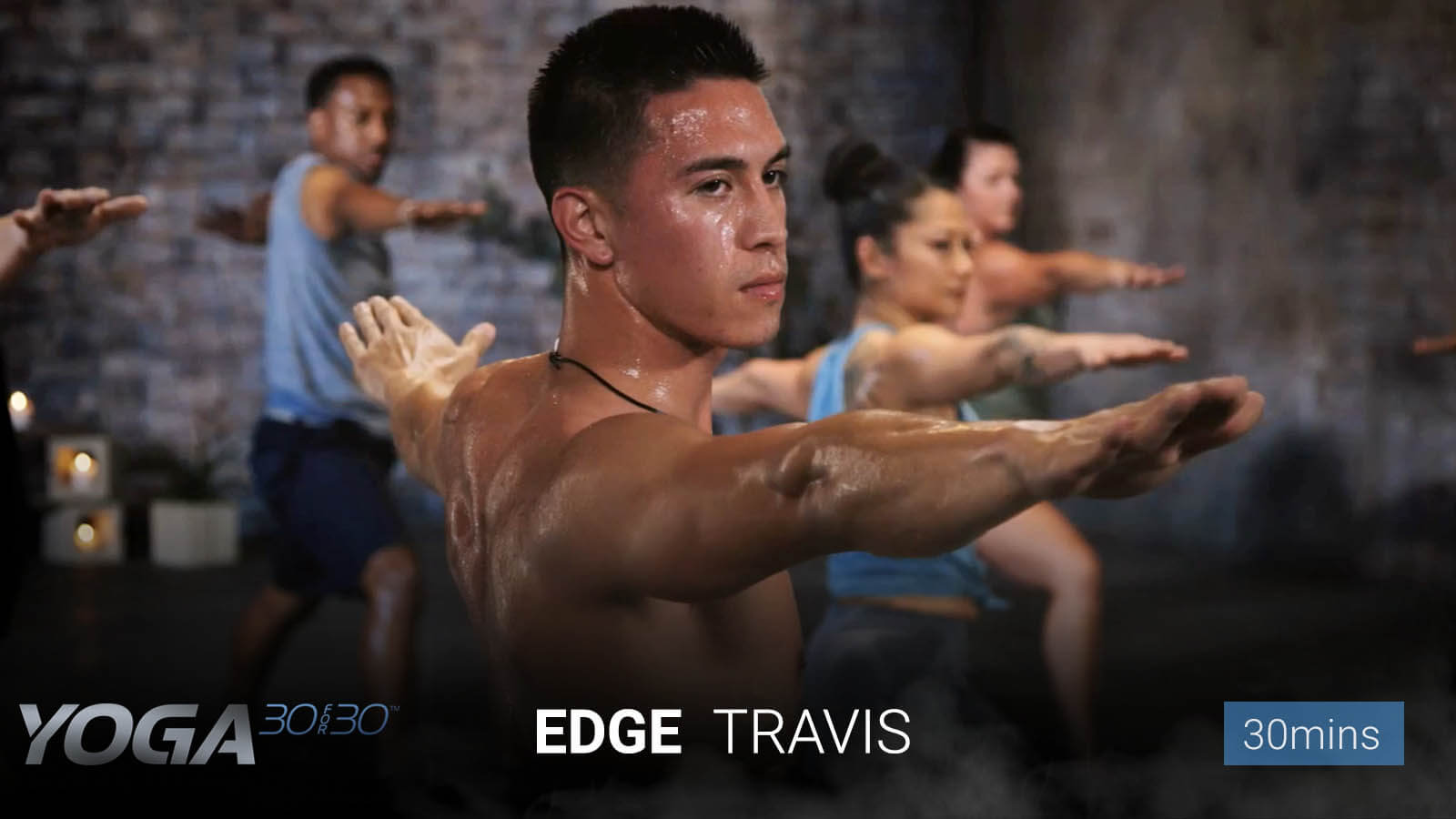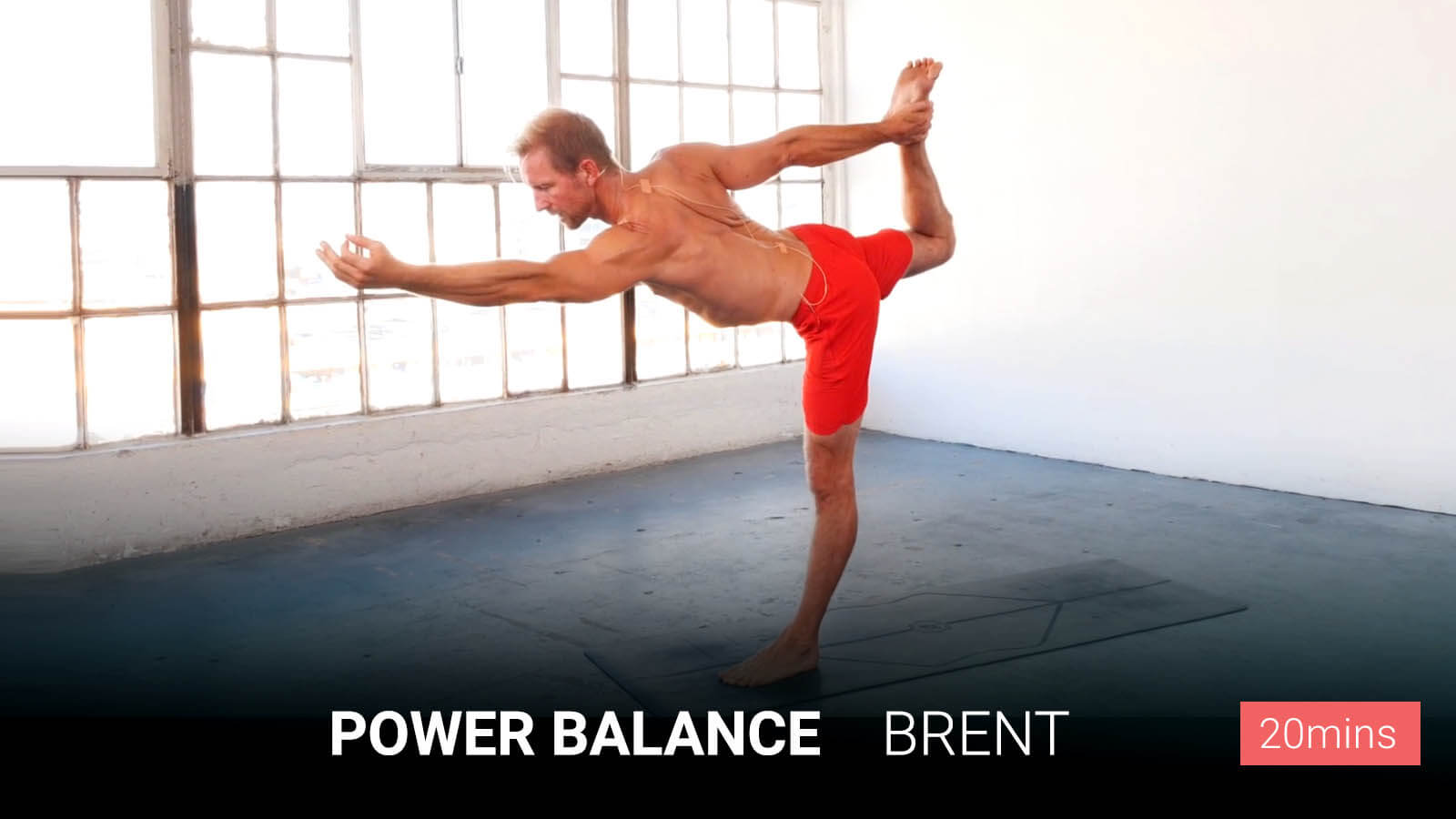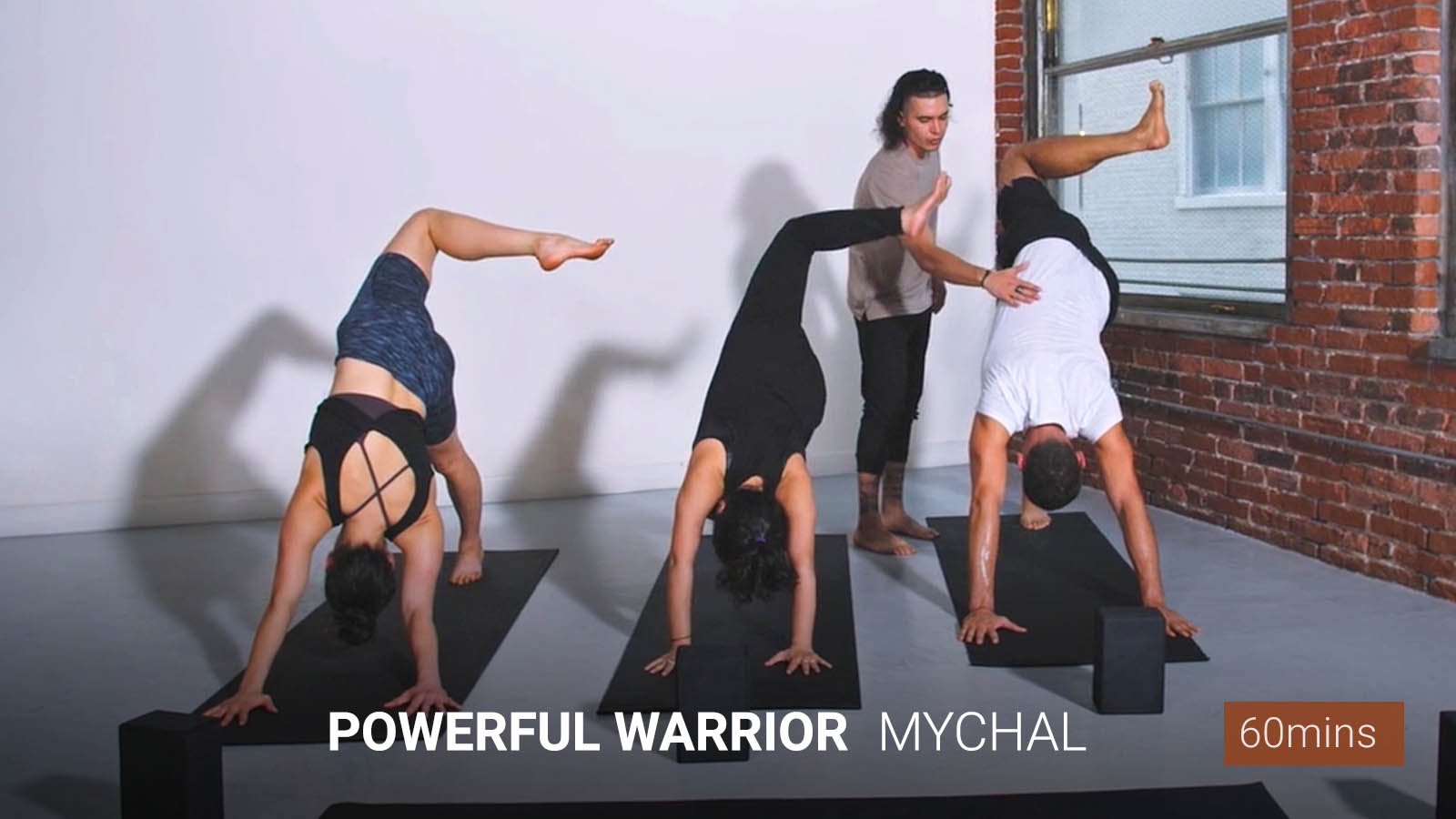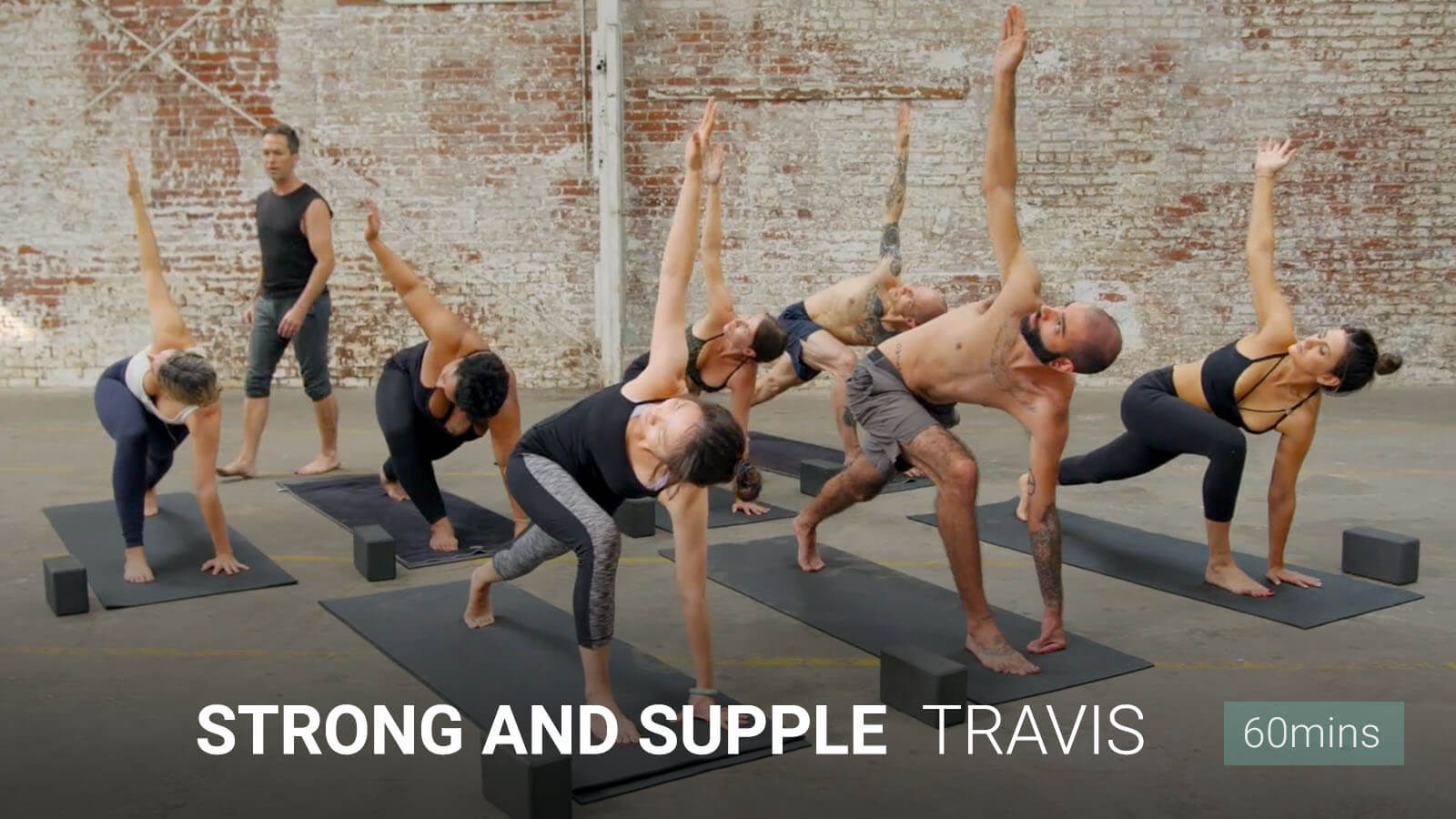Inner Reflections
July 7, 2020
EPISODE 79
Finding Freedom from Likes and Dislikes
Most of us are conditioned to seek pleasure and avoid pain.
In order to find true joy we have to unlearn this basic reflex. It’s as if you are swimming against the stream of evolution.
In this podcast, we will explore finding true happiness by giving up a temporary pleasure for something of an infinite measure.
Hope you enjoy this inspiring episode!
Thank you for supporting the podcast by rating, reviewing, subscribing and sharing with your community!
HOW CAN I SUPPORT THE PODCAST?

Tell Your Friends & Share Online!
Subscribe & Review: iTunes | Spotify | Stitcher | Youtube
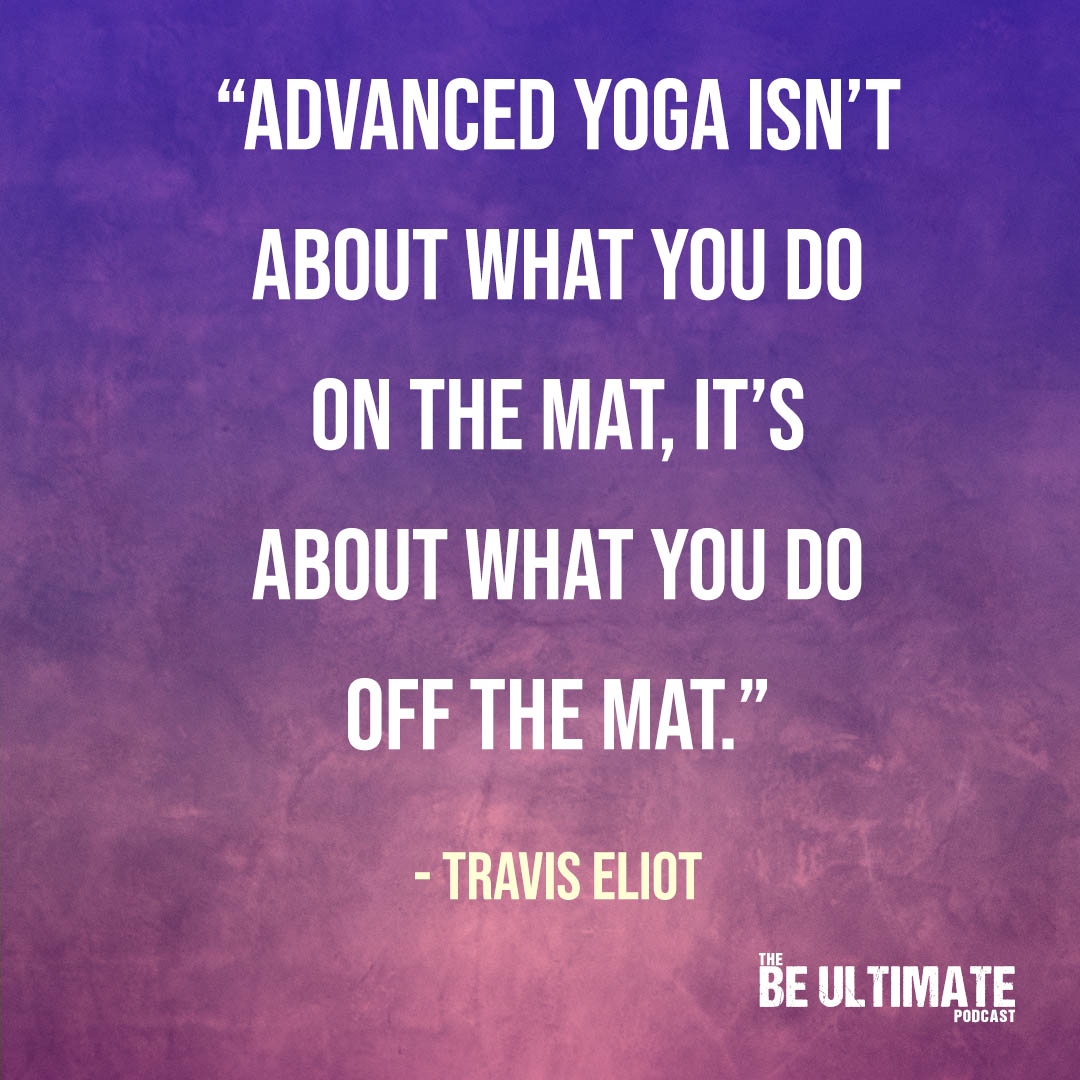
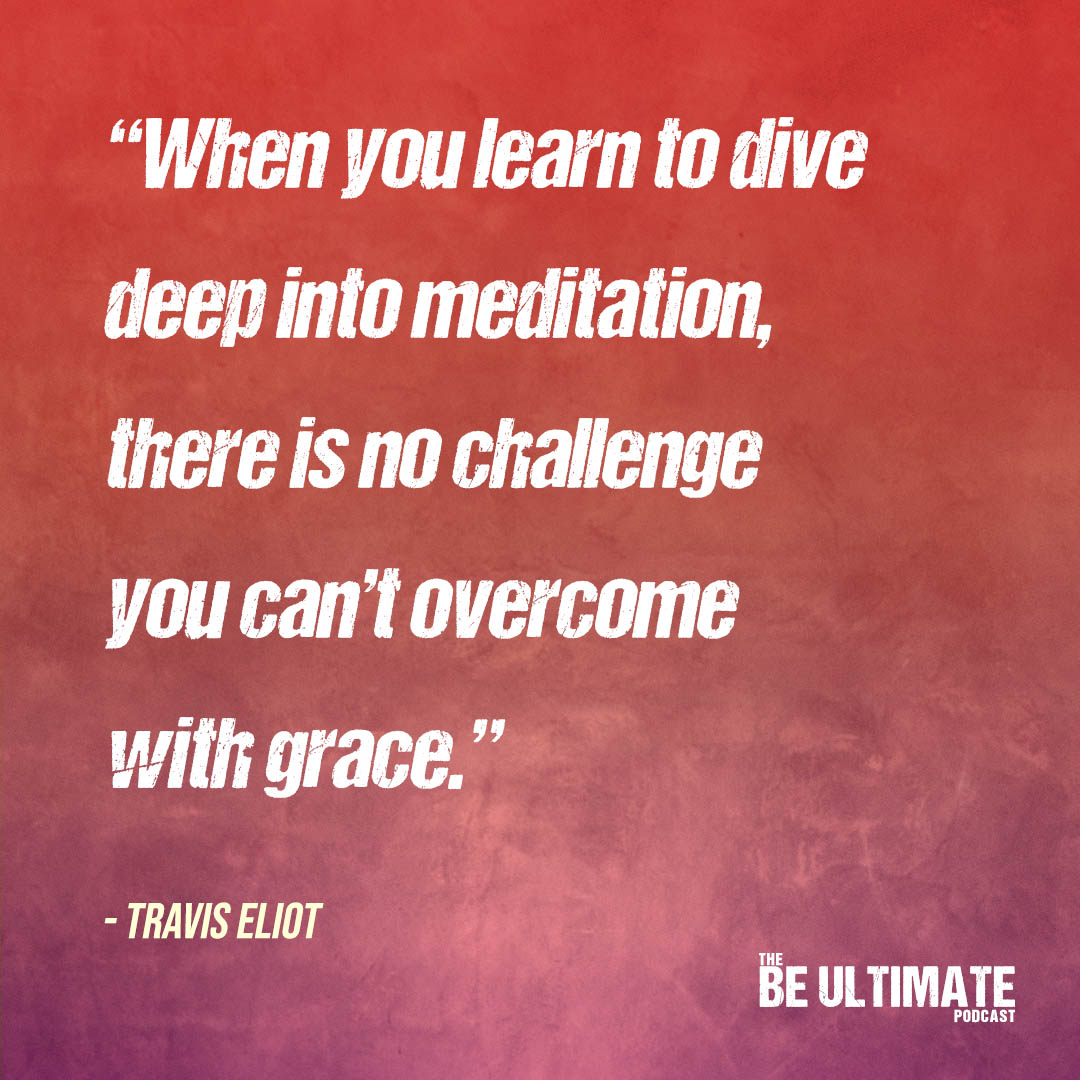
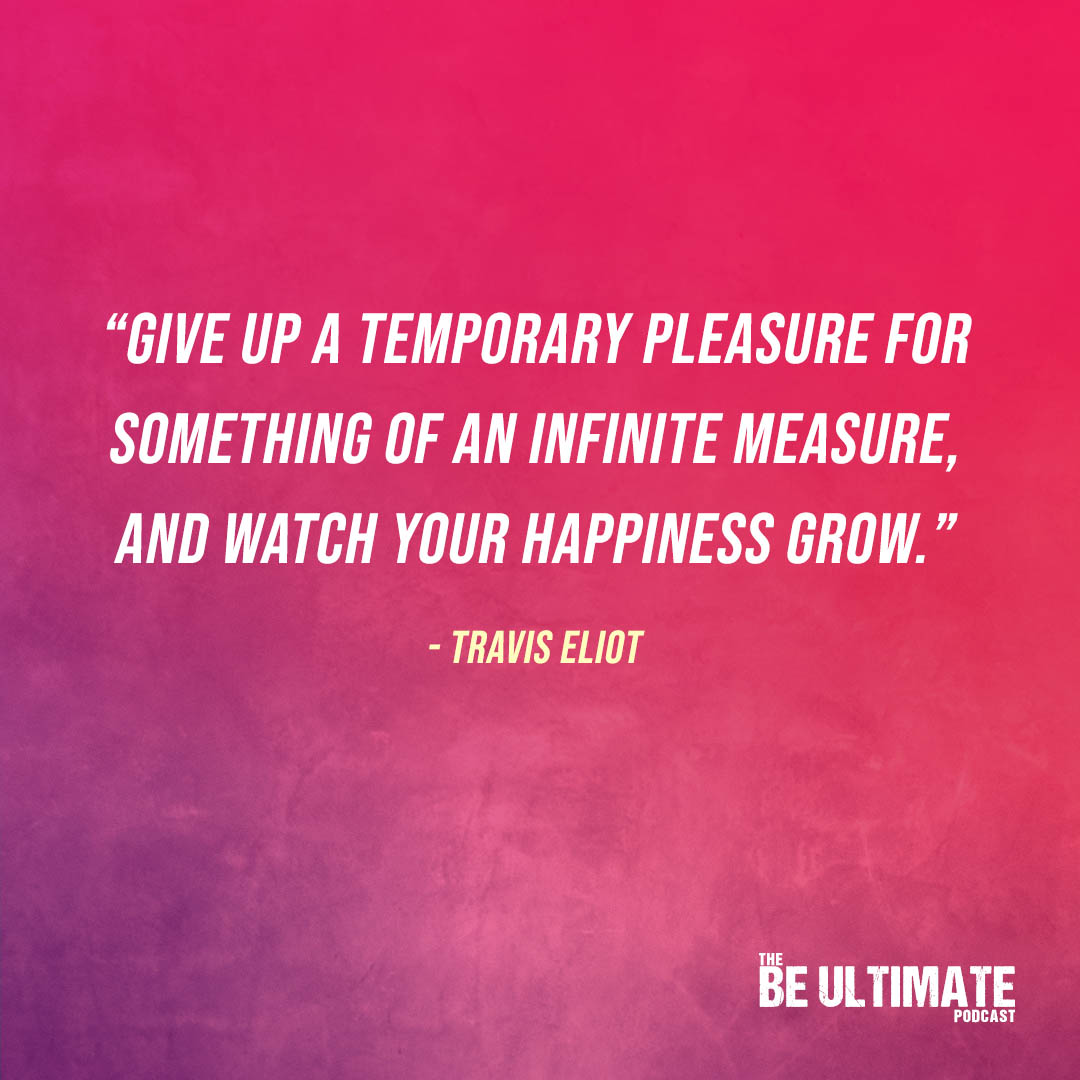
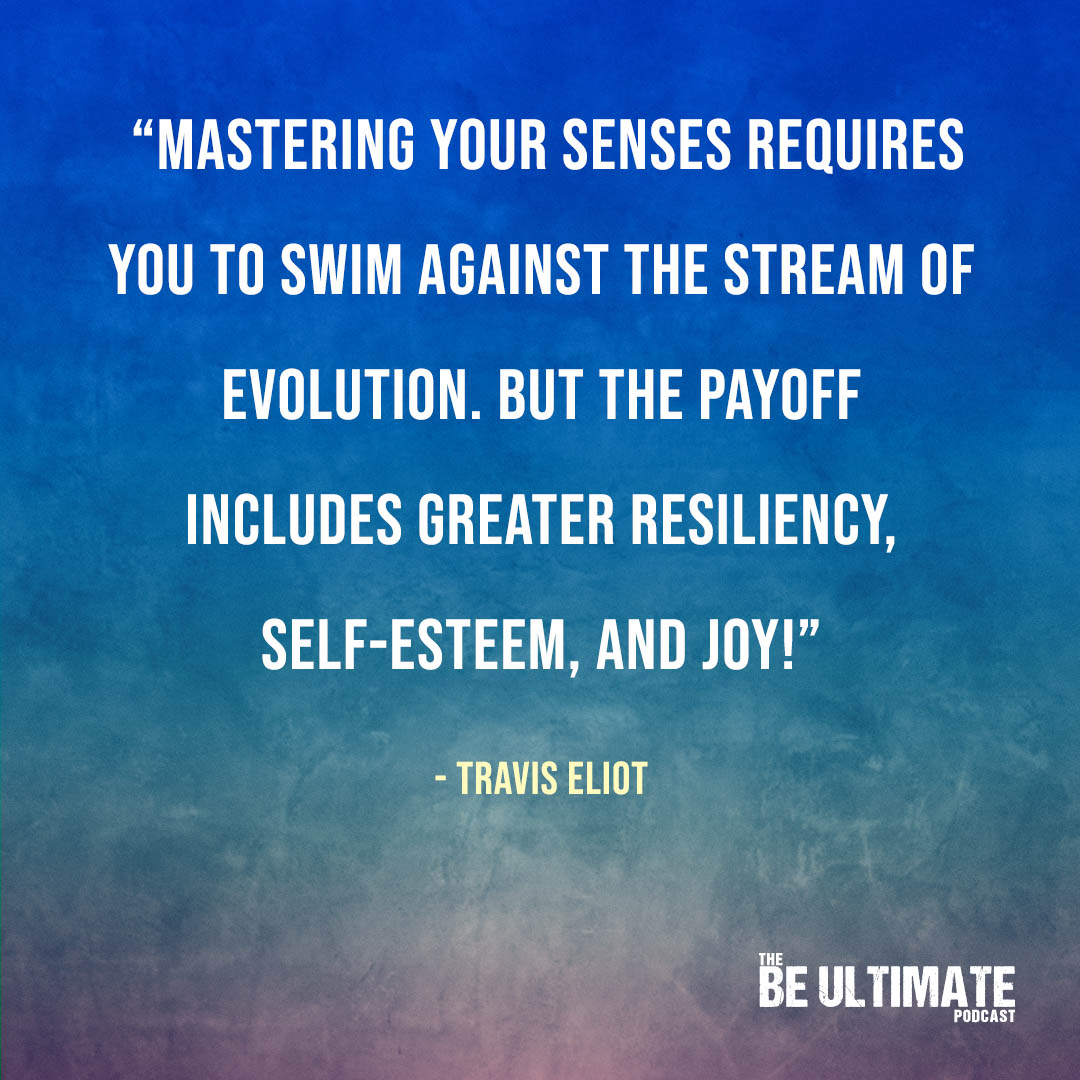
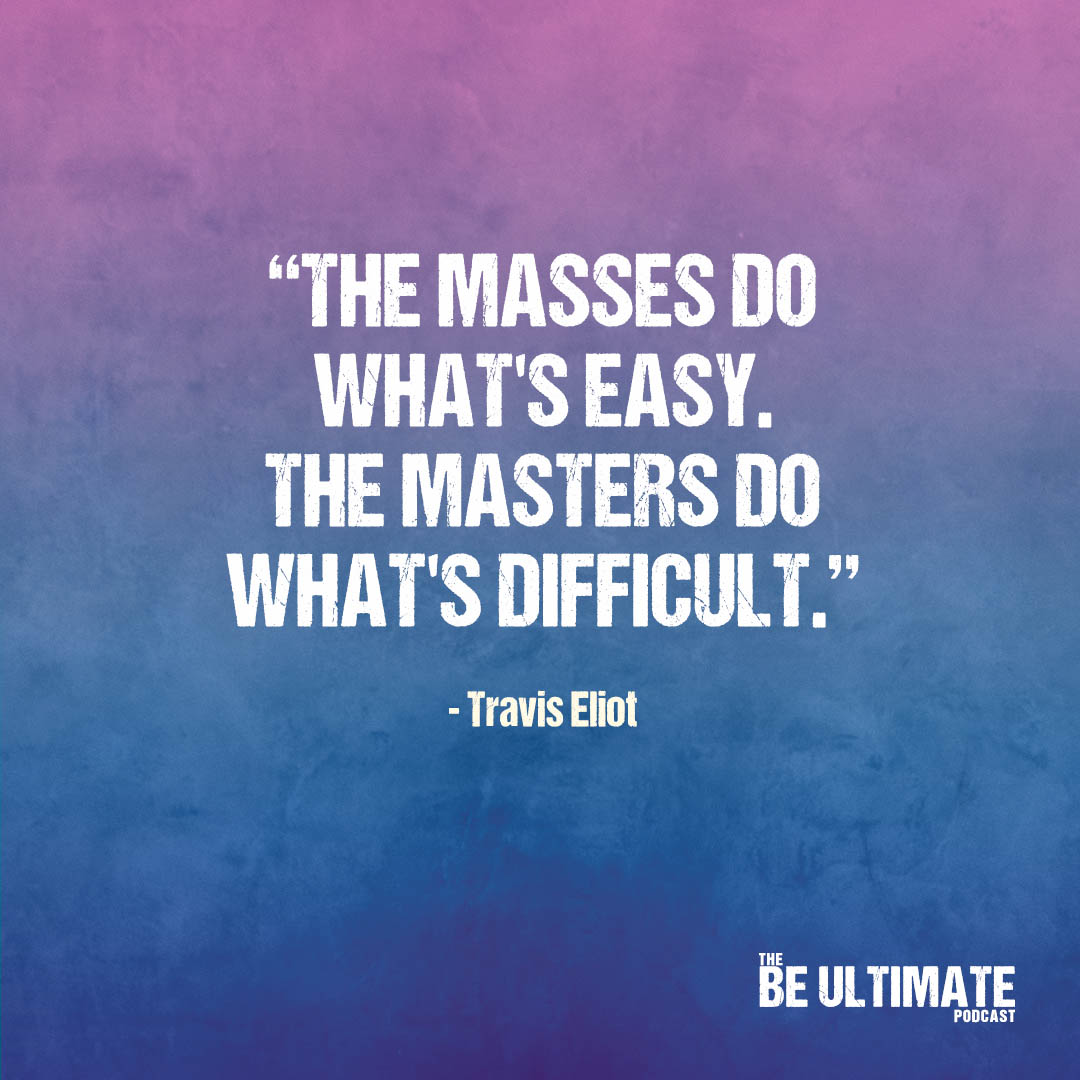
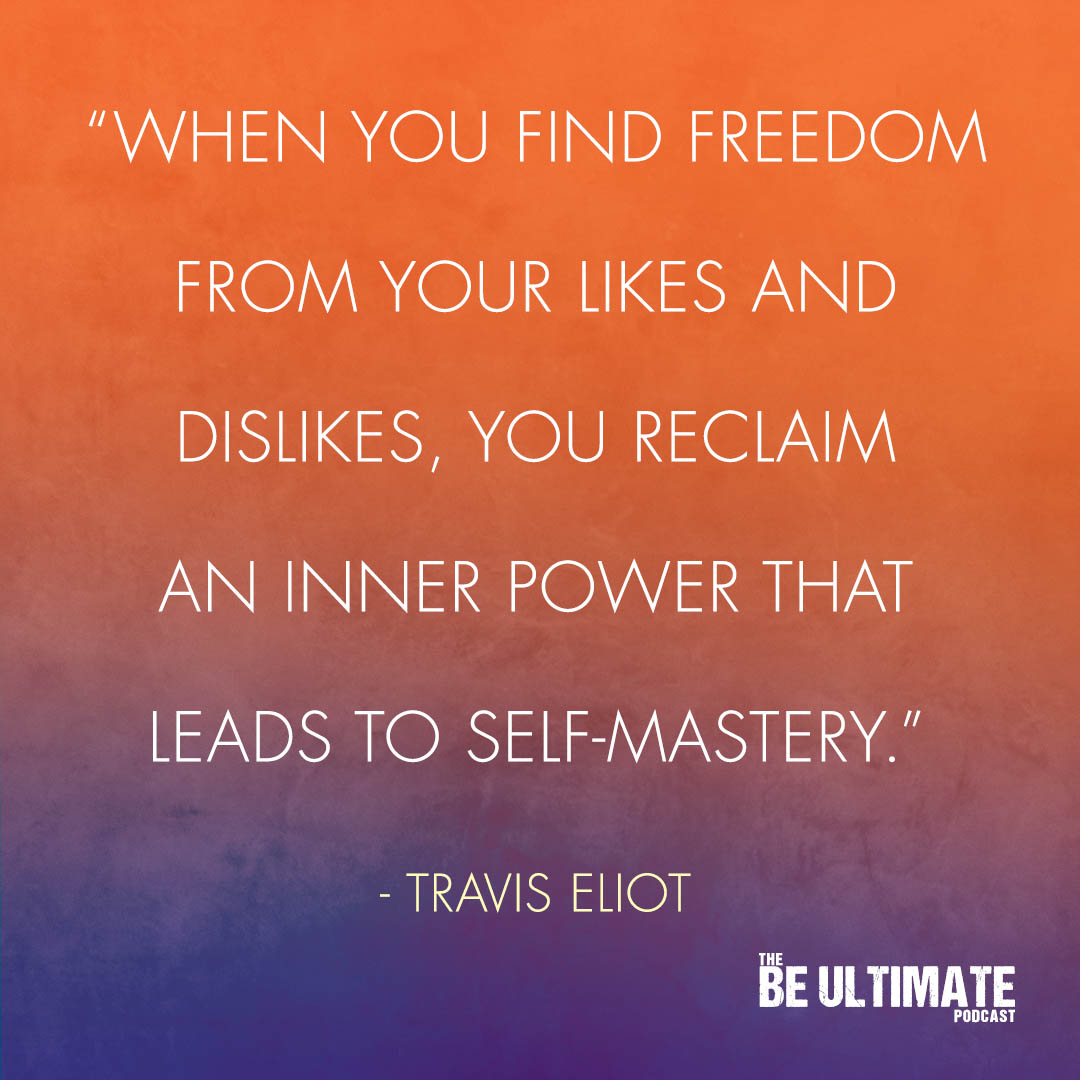
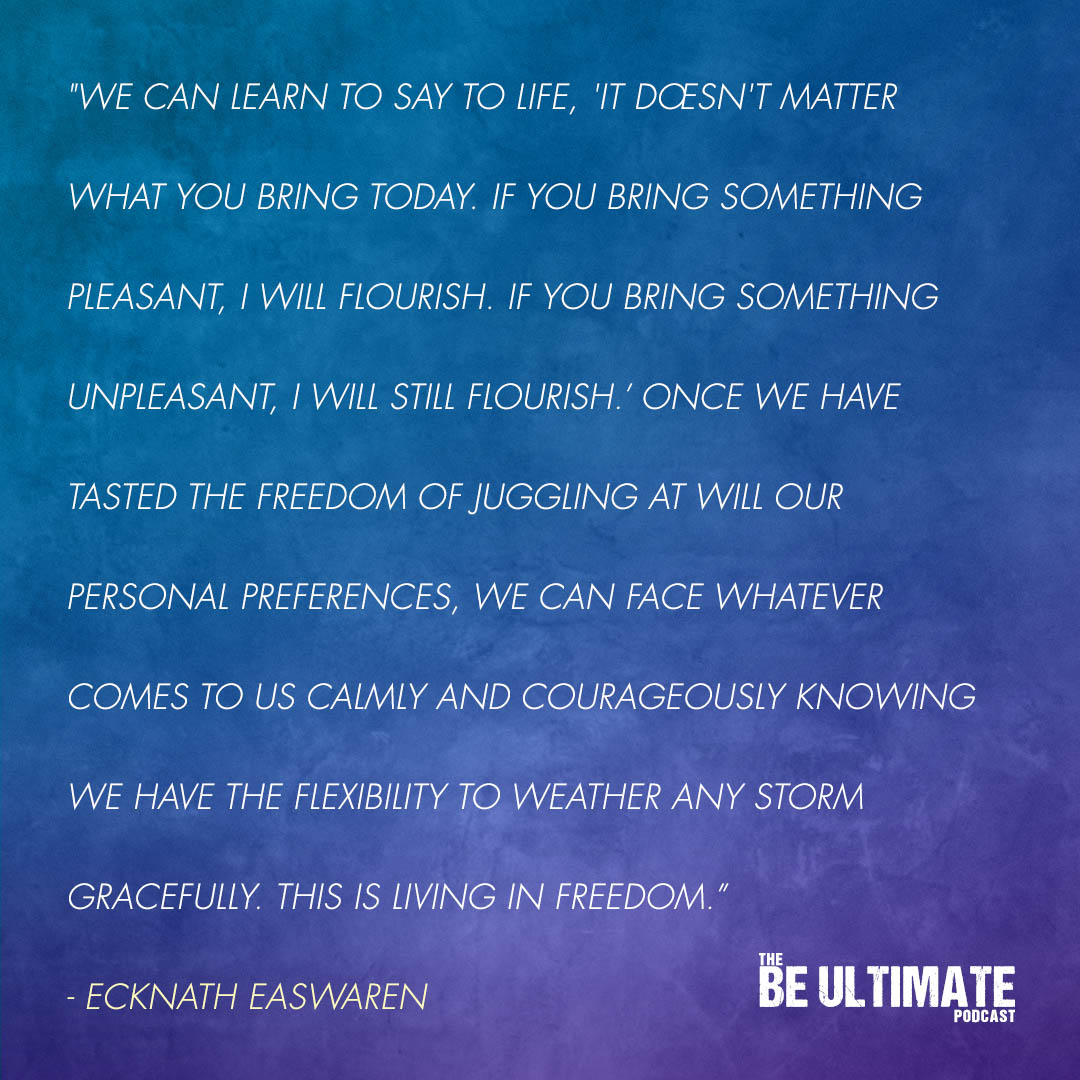
FULL TRANSCRIPT
[The following is the full transcript of this episode of “The BE ULTIMATE Podcast.” Please note that this is direct from Travis speaking unscripted and unedited.]
So this week, I would like to talk about this theme of likes and dislikes. Very often, likes and dislikes are unconscious. We’re not aware of how these affect us. We’re not aware of how these play out within all the various sectors of our life. They play out day after day and have a huge impact on the quality of our life and also ‘the reality’ that we’re creating from this unconscious part of ourselves.
Ultimately, if you’re interested in improving your reality, whether that’s your career, health, relationships, or whatever it is, we have to pause and take a close look and become aware, to bring light to the interplay of our likes and dislikes.
The problem is that when these likes and dislikes take over, we stop playing the long game, and we’re only playing the short game. We’re thinking small picture, instead of big picture. We’re thinking instant gratification, instead of what’s best for the long run.
For example, you may look at somebody who is an athlete, especially a professional athlete or an Olympic athlete. They’re playing the long run. So they put in day in, day out, just working on their sport, working on drills, working on improving their fitness, working on improving their mental, their mind game. And when they say yes to doing this, they’re saying no to a bunch of other things. They may not like to get up at 5 o’clock every morning. They may not like having to go to practice, or go to train, and giving up hanging out with their friends, or going to a party, or sitting on the couch and binge-watching the latest series on Netflix. And this is what we’re talking about, but in the end, they start achieving their goals. They start growing. They start becoming recognized as a master of their craft, a master of their sport. And this is what we’re talking about when we’re saying play the long run, and not the short game!
Another example are students. Students, whether they’re in grade school, or middle school, high school, college, students also have to play the big picture. What’s going to be best to get good grades, to learn to write the great, exceptional papers, and not succumb to the likes of wanting to, again, going to party or maybe procrastinating?
As we begin to transcend these likes and dislikes, ultimately, what begins to happen is we develop a willpower. We develop an inner power and an inner strength that’s able to be able to control the mind so that we are dominating our mind, instead of our mind dominating us, which is the difference between being a prisoner to the mind, and being the one that is in control of the mind.
So it starts to create a type of self-empowerment, and this is huge because when you’re self-empowered, this creates an upward spiral, where your self-esteem improves, your happiness improves.
I’ve seen it within wanting to get in shape, when I haven’t been consistent with my yoga practice, or a physical athletic practice, even before I started practicing yoga. I was saying yes to other things, like going to party, or going to drink beer, going to eat pizza, just eating all the desserts that I wanted. And, yes, it was good in the short-term, but how did I feel the next day, and the following week, and the following month, and then another year goes by?
I didn’t feel good about myself. So my self-esteem suffered. The way that I perceive myself was compromised, and this is no way of living your life.
The whole point of this podcast, is to empower you to give up those temporary pleasures so that then you can have something of an infinite measure, and the infinite measure is unending joy.
It feels good to be healthy. It feels good to be happy. It feels amazing. It feels incredible to be in control of your mind, and I know that my happiness skyrockets the more that I am in control of my mind, the more diligent that I am with my exercise, with my studies, with being good in relationships, with studying spiritual texts, with being smart with money.
I went through a phase, where I used to get these credit cards in the mail and I would just go out buy stuff and do stuff, whether that’s clothes, or electronics, computers, TVs, and I was again just playing the short game instead of the long game. What ended up happening is a couple years went by and before I knew it, I’d accrued $20,000 in debt. And now I’m in this hole, and I got to dig myself out of it. I had to stop succumbing to the likes of wanting to get that next object, to get that next thing, to get that next piece of clothing. I had to give that up and start playing the long game. And, eventually, I was able to eradicate the debt, and then I was able to start to build wealth because I was able to transcend likes and dislikes.
Now another way that we really see this play out is through our senses, and the senses are all connected to the mind. So when I talk about being in control of your mind, I’m also talking about this subcategory of also being in control of your senses.
You see, our daily routine is dominated by our senses. In fact, we face thousands of choices and decisions every day, and a lot of those choices are connected to our senses, when we’re determining what foods we’re going to eat, what kind of music we’re going to listen to, what kind of books we’re going to read, what kind of entertainment we’re going to watch, what kind of things we’re going to go out and buy, what kind of things that we’re inputting through those senses. And so being dominated by these senses, we just go round and round in the same old circles. So, again, we become a prisoner to that cycle of the likes and dislikes of those senses.
We want to develop less rigidity within our likes and dislikes, and we want to create a more spacious flexibility within our likes and our dislikes.
And the benefits of being flexible within your likes and your dislikes are, one, it shields you against stress. The more rigid you are with your likes and your dislikes, then the more stress you’re going to experience because when you don’t get what you want, when things don’t go the way that you want them to go, you get stressed, and we know that 90% of illness is related to stress. So this is a big deal to be flexible so that our stress is not going into red line mode and, therefore, affecting our health and our well-being.
Number two, we also start to find a greater sense of emotional stability. We’re no longer on that crazy wild ride, that roller coaster. Happy and elated when we get what we want, and then falling into despair, when we don’t get what we want, and that’s an exhausting way to live. It’s depleting. It’s draining of your energy. You’re just going up and down, up and down, up and down.
Number three, when you have flexibility within your likes and your dislikes, you are more enjoyable to be around [laughter]. People want to be around somebody, who’s more flexible with their likes and their dislikes because we’re all different. And so when we’re around friends or around coworkers, you know how it is when you’re with somebody at a party, or you’re just starting to date, and you realize how particular they are about every little thing, how rigid they are with what they want and what they don’t want. It’s not that enjoyable to be around, especially when you have to give up everything to what they desire and what they want. There’s no more common ground because they’re functioning purely out of their own ego.
So a good place to practice flexibility within your likes and your dislikes, a great starting point is with food. If you always go with your likes, when it comes to food, you’re going to choose the wrong things. You’re going to over consume things and very often, that means more food that’s spicy, salty, and sweet. Excess spicy and salty food are going to increase inflammation. Excess sodium isn’t so good because it can lead to things, like high blood pressure and heart disease. And then, of course, if we’re overeating sweet foods, then that sugar can also make us very sick.
So we can start by training the palate.
“Training the palate is a powerful aid in training the mind.”
-Mahatma Gandhi
One of the reasons is because if you think about it, your eating is a double sense. There’s two senses involved, when it comes to eating food. One is the taste or the flavor, and number two is the smell, the aroma, of what it is that you’re eating. So you’re kind of knocking out two birds with one stone. Or if you’re an animal lover, you may say feeding two birds with one hand. You’re taming both the flavor and the aroma.
So here is a challenge for you. Try giving up your favorite tasty food for something that you don’t necessarily love the taste of, but it’s highly nutritious. Maybe this is a green juice. Maybe this is kale. Maybe this is salad. Whatever it is for you that you don’t necessarily love the taste of it. You don’t enjoy it that much, or at all [laughter], but you know that it’s really, really good for you. Choose that over the thing that you’re naturally gravitating towards, and this will help you to start to find a freedom beyond your likes and your dislikes.
You begin to develop self-mastery because here’s the deal. You’ll never be able to do the big things right if you can’t do the little things right. So the foods that you’re eating, starting with the palate, those are the little things. As you begin to develop the muscle of self-mastery and that gets stronger and stronger, naturally, that becomes applicable in greater and greater ways within your life.
I think about my love for hash browns. Love hash browns and sometimes I go through phases, where I’ll have hash browns three times a week. But there was a study done in the American Journal of Clinical Nutrition, and it said, “Eating fried potatoes, whether that’s French fries or hash browns at least twice a week, leads to an increased risk of death.” I don’t want to die early. I want to live a life that’s as long and healthy as possible. So I have to say no to my love of hash browns, even though I like it, even though I find it pleasurable. I’m going to give up temporary pleasure for something of an infinite measure. I’m going to give up that instant gratification of the taste of the hash browns for a long, healthy, happy life. And if you think about it, right, what would wisdom choose? Wisdom always plays the big game.
So this is a form of – in yoga philosophy – what we call tapasya. Tapasya, it’s sometimes translated into the fire of purification. When we say no to something and we say yes to a challenge, we want to run away from the challenge but we still do it. We still play our edge. We still explore the discomfort. We even move through the tunnel of fear. This is always a form of tapasya, and it purifies. Purifies ignorance, purifies delusion, purifies lethargy, purifies in yoga what we call tamas. Tamas is that heavy, dull, stagnant energy. See, you get heavy, and dull, and stagnant, and stuck, when you’re always just doing the things that you like. And then, eventually, when you get heavy and you get dull for long enough, you get depressed because you have repressed your ability to move beyond and find freedom from likes and those dislikes.
We also see this within exercise. It is not easy to exercise, whether you’re doing strength training, whether you’re doing a yoga practice, whether you’re going for a run. There is discomfort within that. Any time you’re growing, you’re going up against your edge. You’re moving beyond what you may not want to do. You may not want to get up at 5:30 in the morning to go for a swim, to go for a run, to get onto your yoga mat, to get onto your meditation pillow, but despite that, you’re still showing up. You’re still doing it.
So you can work with this not just within the foods that you choose, but also how you approach exercise.
Some people have a really difficult time with Yin Yoga. Yin Yoga, if you’re unfamiliar, is where you hold long, deep stretches for typically three to five minutes. And I hear all the time, type A personalities that say, “It was the most challenging thing they ever did.” Some people never even go back and do it again. This is them running away from something they dislike, but the way that it works is very often the things we avoid the most, are the things we need the most.
So when you start to lean into your discomfort, when you start to do the things that you dislike, you develop a greater capacity for resiliency.
Another place you can work on transcending likes and dislikes is within mundane chores. This can be washing dishes, cleaning the bathroom, doing laundry, and I’m right there with you. I sometimes struggle with doing the laundry. I have that resistance, or washing the dishes, “Here we go again.” But what I’ve learned over time is it’s when I bring mindfulness and presence to the task that I’m doing, it’s boring, and dull, and mundane. And as much as part of me dislikes it, then I begin to create more of a freedom, where I actually start to enjoy it.
You see, you’ll never enjoy something, when you want to be somewhere other than where you are. So stop fighting what you have to do. Stop fighting what is present in your present moment-to-moment experience, and just be present to what’s there because stress is created when you are here, but you want to be somewhere else. So if you’re washing the dishes, really bring your mindful attention to the task at hand, and this is another way that you’ll find freedom from likes and dislikes.
Very often in monasteries, Zen masters will give the student the task they hate the most because when you enter as a monk or a nun, you have chores that you do. You have to in some way contribute to the monastery, to the upkeep of the temple. They’ll give them the thing that they really don’t want to do, which is usually cleaning the bathroom.
I remember doing this on my first 10-day silent meditation retreat, where I’d clean the bathroom once every five days or something, and I didn’t want to do it. I did not want to do it. Every part of me was revolted because it was a public bathroom. So all these other guys are using the bathroom, and you know how that goes [laughter]. But I had to get over it. I had to do it, and when I stopped resisting it, started embracing it, I actually – believe it or not – began to enjoy the task. I transcended my likes and dislikes.
When you live in this way, when you find the freedoms of your likes and dislikes, you’ll feel like you’re reclaiming a part of yourself, that part of inner power, that part of self-mastery, and this will boost your self-esteem.
This will empower you so that when you walk into the bar, you’re the only one that’s not drinking. You’re the only one that’s not making a fool of yourself. That’s a very empowering position to be in because you’re no longer a victim to external sources outside of yourself. Most people are a victim of what’s going on in their environment, and whatever the environment dictates externally affects the environment internally, and that’s not living from a place of power.
You may be the only one that goes out for a trail run on a rainy, cold morning. That feels empowering. You may be the only one eating super clean at a holiday party. You’re the only one not gorging on cookies and sweets because you’ve committed to eating clean. You’ve committed to only putting things into your body that are nutritious and are going to feed your health and your well-being.
You see, the masses do what’s easy. The masters do what’s difficult.
When you follow the herd, you step in other people’s shit. This is what happens when we become a victim to our external circumstances. And when you’re dominated by your likes and your dislikes, you only paint yourself into a small box that’s called the small self. I don’t want you living in the small small self. I want you living in the big self, the big self of unending joy, and power, strength, and resiliency.
When you live in the small self, you’re more reactive. You’re more easily upset. You, again, are you’re a victim of those external circumstances. You’re happy when you get your way, but when you don’t get your way, you’re pissed. You’re overly frustrated. You get angry. You get tweaked out. This wreaks havoc on your nervous system, and your health, and your well-being.
So finding freedom from your likes and your dislikes, you’re able to keep your cool. We call this equanimity.
“We can make our minds so like still water that beings gather around us so that they may see that may be their own images. And so live for a moment with a clear, perhaps even with a fiercer life because of our quiet.”
-William Butler Yates
A story that represents this theme of equanimity and keeping your cool is about a Zen master, and the Zen master’s next door neighbor is a teenage girl. One day, her parents find out she is pregnant. The parents are very upset and they start pressing the girl to find out who the father of the baby is, and she blurts out, “The Zen master next door!” The parents are stunned and in rage. They storm over to the Zen master’s house. They start yelling at him angrily, ”How could you do this? Did you know that you are now the father of our daughter?” And the Zen master calmly replies, “Is that so?” The Zen master, naturally, loses his reputation. He was renowned in this town but everybody started to turn on him. He was isolated, and couldn’t go out in public without getting attacked.
When the child was born, the parents dropped the baby off and demanded the Zen master raise the child. After a year passed, they found out the daughter had lied and that the actual father was a young man from the butcher shop. The parents went over to the Zen master’s house, and they profusely apologized, begged for forgiveness, and the master said, “Is that so?” He relinquished the baby back to the parents.
This is an ultimate example of transcending likes and dislikes. The Zen master was able to remain steady and calm despite dramatic external events. He did what he had to do with equanmity. He was able to rise above the perpetual human drama created by the human ego.
“The riskiest thing that we can do is to just maintain the status quo.”
-Bob Iger
So if you are a victim, if you are a prisoner to the likes and the dislikes, you’re just living in the status quo, when you are capable of so much more.
I challenge you to stop being a hostage to your senses.
When you are rigid with the taste of food, most likely you’re rigid in other areas as well, and things that are too rigid, often get broken. Watch your mind, and be aware of how this theme of likes and dislikes plays itself out.
As you start giving up the temporary pleasures for things of an infinite measure, watch how your happiness grows.
Not the fake happiness, not the temporary happiness, but watch how the permanent joy begins to sustain itself. Watch how your self-esteem improves. You feel good about yourself because you’re making decisions that aren’t always easy. You’re making choices that are based off the big game, instead of the small game. You’re now moving from your small self to your big self.
“We can learn to say to life, ‘It doesn’t matter what you bring today. If you bring something pleasant, I will flourish. If you bring something unpleasant, I will still flourish.’ Once we have tasted the freedom of juggling at will our personal preferences, we can face whatever comes to us calmly and courageously knowing we have the flexibility to weather any storm gracefully. This is living in freedom. The ultimate goal of training the mind.”
-Ecknath Easwaren
Thank you guys so much for tuning in to another episode of the Be Ultimate podcast. Again, if you find this material, this knowledge, this wisdom to be useful, to be helpful, please click subscribe. Please subscribe to the podcast. Leave a comment. Leave a review. Share with your community. Thank you. Thank you so much. It’s been an honor.
Now let’s finish with the ultimate prayer.
“May we bring strength where there is weakness.
May we bring courage where there is fear.
May we bring compassion where there is suffering, and
may we bring light where there is darkness.
May we be ultimate.”




